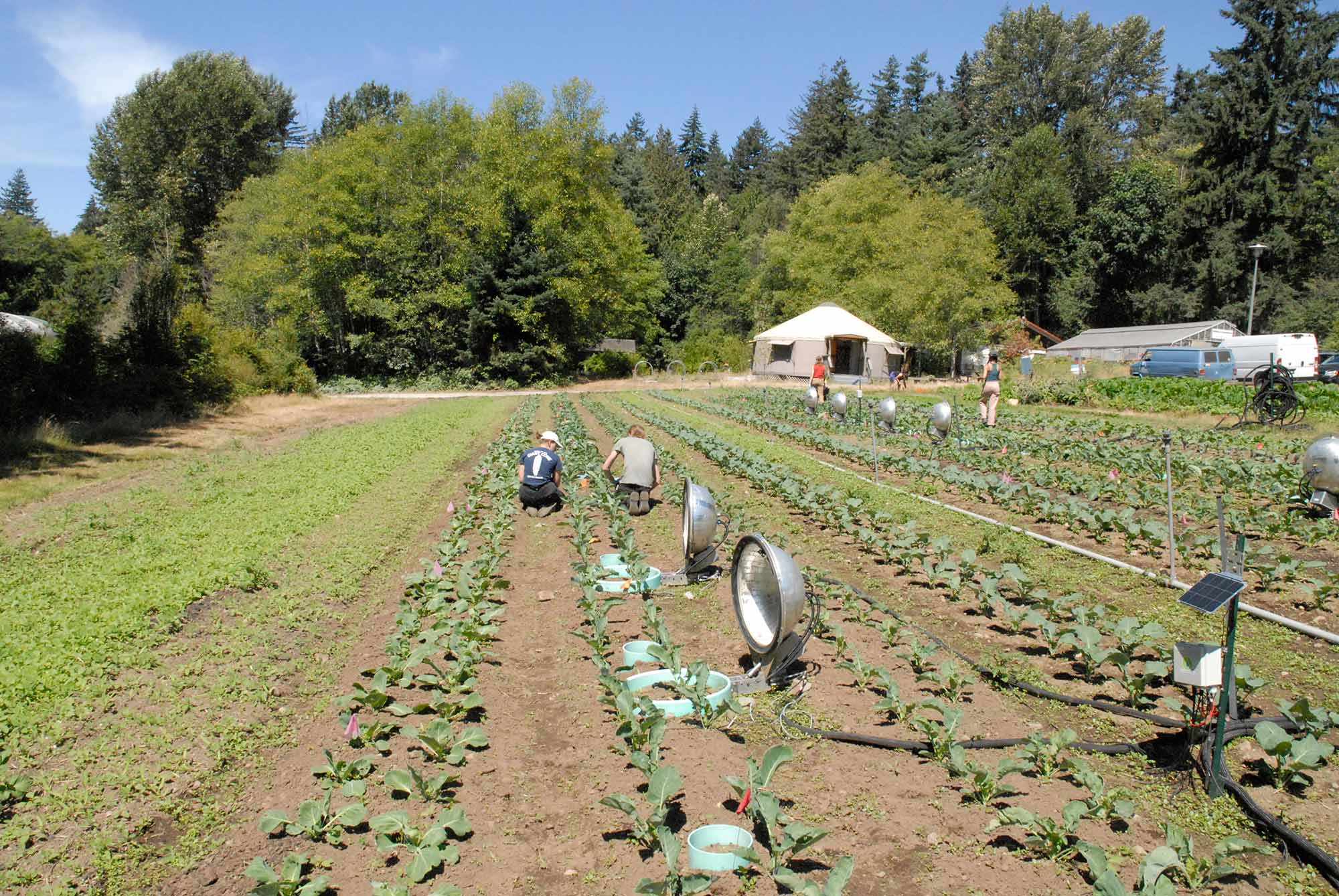
Climate Resilient Vegetable Farming
Project Lead
Dr. Sean Smukler, Associate Professor, Department of Applied Biology and Soil Science, Sustainable Agriculture Landscapes Lab, Faculty of Land and Food Systems (PI)
Alane Lee, Lab manager
Funding
Centre for Sustainable Food Systems at UBC Farm; Ministry of Agriculture, Food, and Fisheries; UBC Faculty of Land and Food Systems
About the Project
This project will assess the field performance of a suite of novel and existing soil management practices (i.e. cover crops and plastic mulch) on soil-water dynamics in a coordinated study that includes controlled experiments, on-farm demonstration trials, and modelling of longer-term impacts and associated farm economics. Using results of field trials, through collaboration with participating farmers, we will develop a set of site-specific management recommendations that account for variation in soils and climate. Results will be shared through farmer networks, producer associations, workshops and digital planning tools.
Research questions
- Which soil management practice(s) will result in improved soil water dynamics, crop yields, and farm profits?
- How do we model the medium-term (10- and 20-year time horizons) impacts of these soil management practices for key soil bio-physical and farm economic outcomes?
- How can we co-develop a set of site-specific recommendations for improving soil-water dynamics and share them with vegetable producers across the province?
Overall project methods
We are testing a range of soil management practices using a variety of indicators for crop and soil climate-resilience across 15 farms in BC. Some examples of the practices being evaluated include different tile drainage strategies, various fertilizer nutrient application rates, and their impacts when being conducted in the presence of varying cover crops.
UBC Farm project methods
At the UBC farm we will compare three organic amendment treatments and a control in combination with various winter soil cover options. Four amendment treatments will be compared.
- High compost application: an application rate of compost that targets crop nitrogen demands, expecting a slow release of nutrients from compost for crops
- Low compost application: an application rate of compost that targets crop nitrogen demands, expecting a fast release of nutrients from compost
- Precision: an application rate of compost that targets crop phosphorus demands and supplements crop nitrogen demand with an organic fertilizer with readily available nitrogen (e.g. feather meal)
- Control: No amendments added.
In the winter, each amendment plot is split in half with either a cover crop or a silage tarp. Soil water content will be monitored by using the soil water-sensors network part of the Living Laboratory for Water Sustainability in collaboration with Mark Johnson. We also are deploying greenhouse gas chambers throughout to monitor carbon dioxide, methane and nitrous oxide emissions to further assess environmental impacts.
Project expected impact
- Identification of soil management practices that lead to enhanced timing of nutrient availability; increase number of workable days; increased soil water holding capacity and thus reduced need for irrigation; improved farm profits; enhanced protection of the soil in the wintertime and a build-up of soil organic matter; and reduced greenhouse gas emissions.
- Enhancing our ability to understand and demonstrate the variability in crop performance based on local climatic conditions and soil management practices; improve our capacity to effectively model outcomes to evaluate soil management decisions for future climatic conditions; as well as increase farmer input in the co-development of management recommendations.